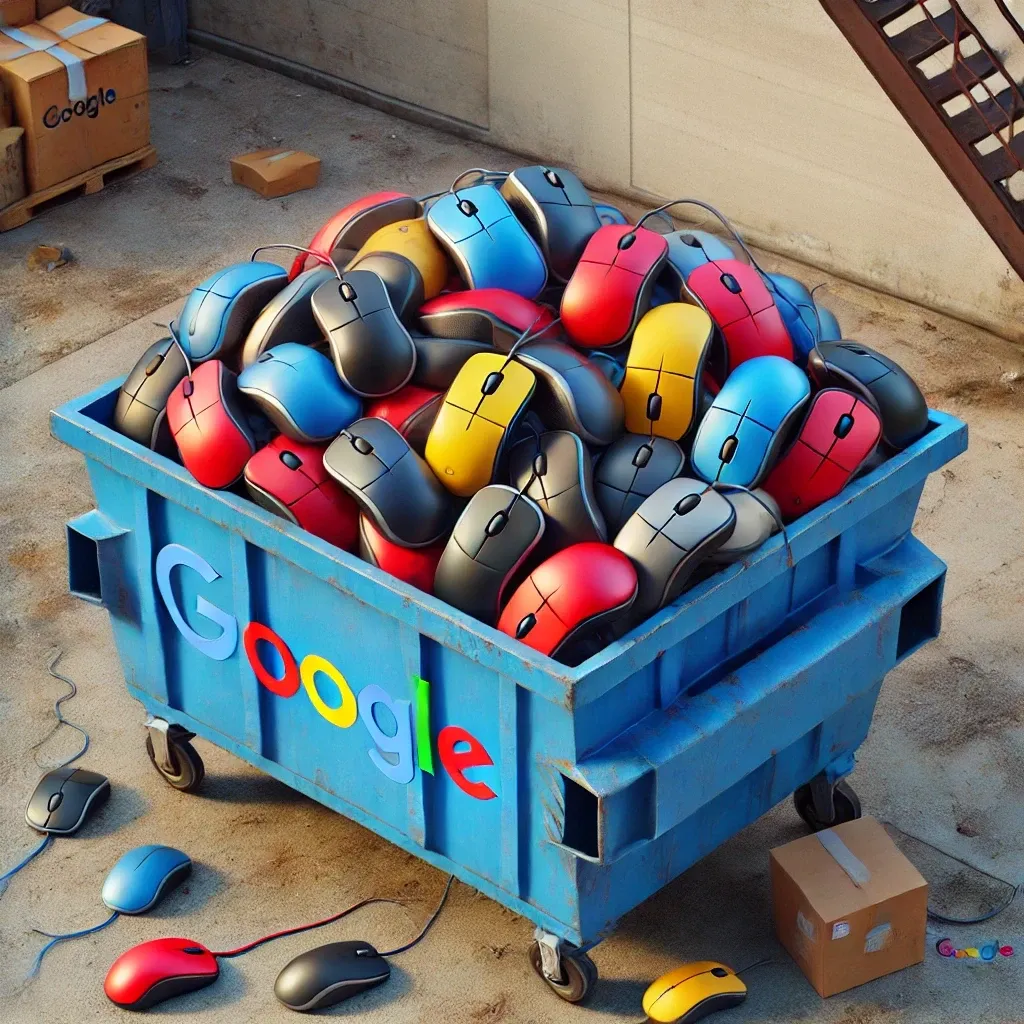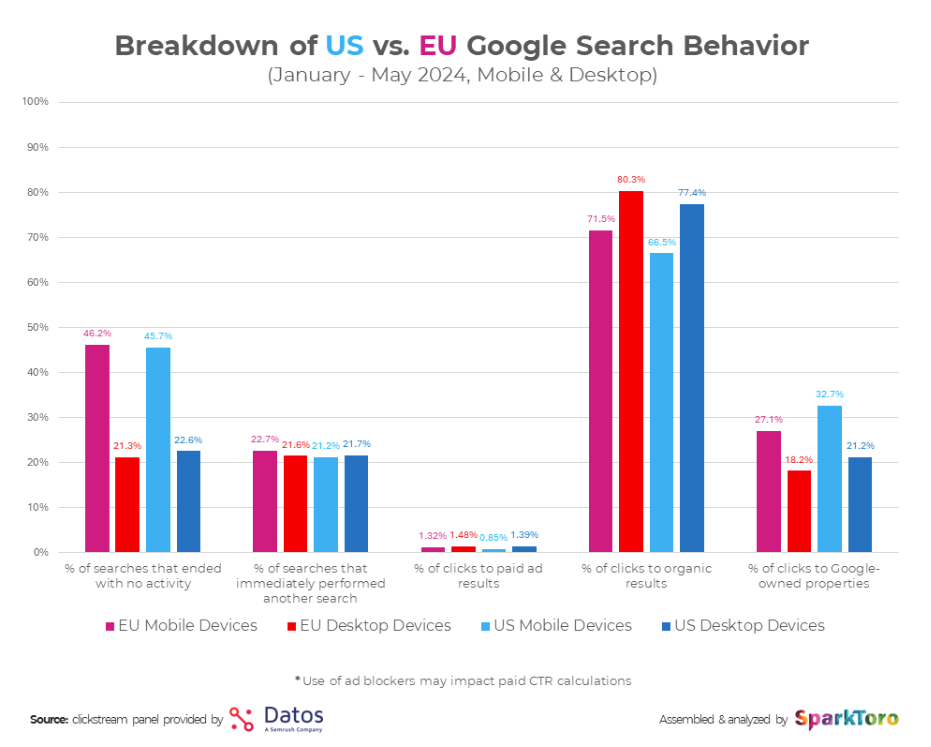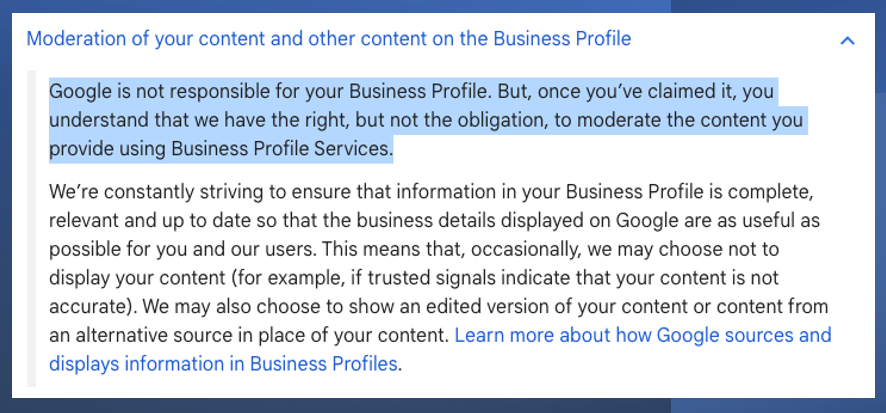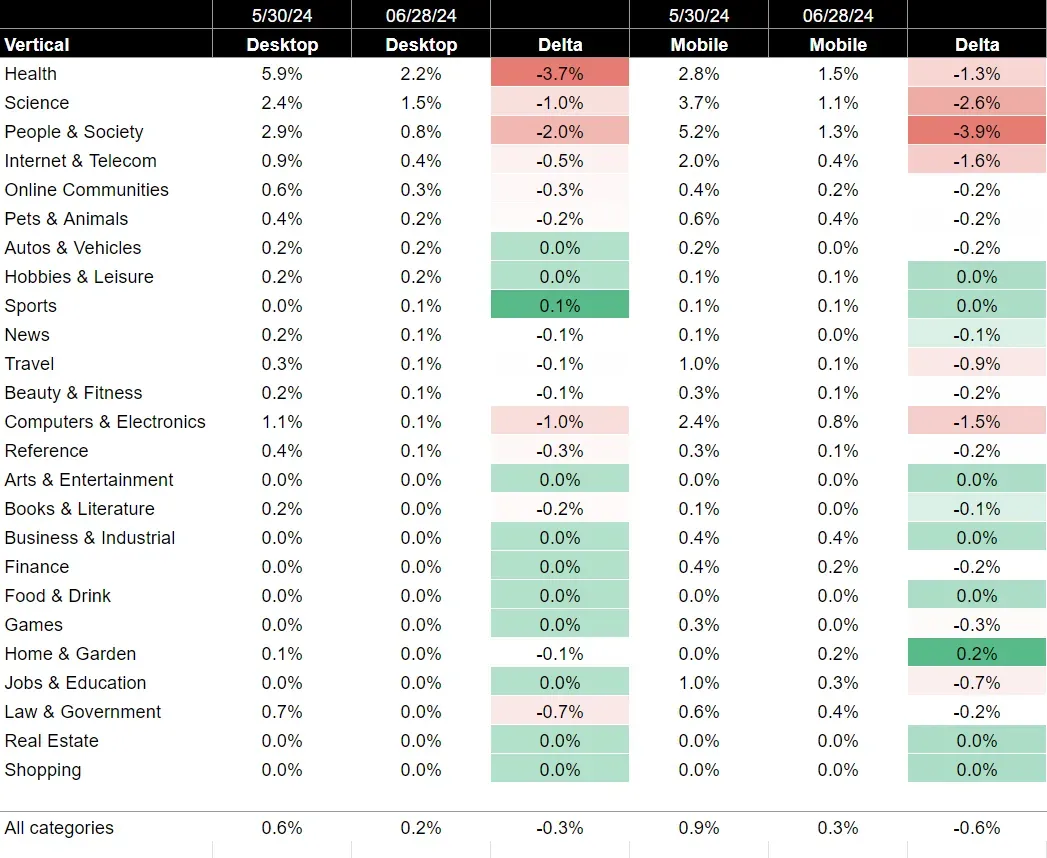Zero-Click Data, Google NOT a Publisher, AIO Extreme Caution

Study: 29% of Clicks Stay on Google
On a recent Near Media podcast Rand Fishkin teased a new US-EU zero-click study. He's now released it. What it shows is a very high percentage of zero-click results (59% in US, 60% in EU), which is not new. In fact, it's somewhat lower than in 2020. When there is a click (42% in US, 40% in EU), much of that traffic stays within the Google ecosystem (29% in US, 24% in EU). What this means is that a minority of search behavior results in clicks to third party sites (or ads): 36% in the US and 37% in the EU. Fishkin concludes that in Europe the DMA has had only a limited impact on Google's self-prefencing behavior: referring traffic to its own properties – Google Maps, Images, Flights, Hotels, YouTube and so on. Fishkin goes on to argue, based on clickstream data, that Google is not threatened by AI competitors and that "US and EU, searches per searcher are rising." He infers that search quality controversies have not hurt Google with the general public. This conflicts with recent survey data (here, here). But Fishkin's data is behavioral rather than self-reported. Interestingly, he also suggests AI Overviews may have had a negative impact on mobile traffic in May, which has recovered after the dramatic AIO pullback.

Our take:
- I don't entirely believe that there's zero competitive threat from AI alternatives to Google. But it may only be from a relatively small group of heavy AI users.
- I wish there were more insight into the relationship between AI Overviews and the May traffic drop. May is when AIOs formally launched.
- Zero-click behavior is less of a concern for local SEOs and local marketers because many leads are driven by GBP content.
Google: Don't Call Us a Publisher
Google does not want to be considered a publisher. That's because if Google were legally deemed a publisher Section 230's liability protection would arguably disappear. That's an oversimplification, but that's what Google is essentially trying to avoid and disclaim with its recently updated Google Business Profile Terms. The relevant section says, "Google is not responsible for your Business Profile. But, once you’ve claimed it, you understand that we have the right, but not the obligation, to moderate the content you provide using Business Profile Services." Moderation is permitted, even required in some instances by Section 230. And moderating content doesn't automatically convert Google into a publisher. Basically, a publisher creates content but "an interactive computer service" (protected by Section 230) merely hosts or distributes it (e.g., social media posts, reviews). But this distinction breaks down in reality. Google local search results (Local Pack, Business Profiles, Maps) are not simply third party content hosted by Google. Google local content is a proprietary suite of products and, as Google itself told the European Commission, part of its core search offering. Given that, what's the distinction between a traditional yellow pages publisher and Google local/GBP, which it editorially controls?

Our take:
- NetChoice case: SCOTUS suggested content moderation is not unlike what "traditional publishers" do when they "shape other parties’ expression into their own curated speech products."
- Moderation and search results are both "editorial" and protected by the First Amendment. That's why you can't sue when your rankings drop.
- There's clear tension between Google's editorial control over SERPs/GBP/Maps and the claim Google isn't a publisher.
AIOs Proceed with Extreme Caution
By now you know the history of Google's AI Overviews well. Launched in May 2023, they were originally "Search Generative Experience." In the Google Labs beta, SGE results appeared in almost 90% of results for those who'd opted-in. At Google I/O, SGE was rebranded as AI Overviews (AIOs) and went live. After the general rollout, AIOs appeared far less frequently. But then came a series of embarrassing errors and corresponding "PR backlash." Kevin Indig has been tracking AIOs using Semrush Sensor and found that they now appear (as of June 28) only 0.2% of the time on desktop and 0.3% on mobile. He observes that YMYL industries (e.g., health) have seen the biggest pullbacks. He also observes that the top organic result is often the source for much of the AIO text. Curiously, Featured Snippets and AIOs co-exist – often with slightly different information – creating potential confusion. Indig adds, on a positive note, that there are more links/citations (including more Reddit and Wikipedia) in AIOs now, which is probably a way of trying to improve accuracy. From an SEO strategy perspective, Indig argues, its business as usual – for now.

Our take:
- SGE was mostly a defensive reaction to the launch of ChatGPT and Bing Chat. It was also partly a performance for investors.
- While Google has long used AI behind the scenes in search, it probably would not have developed SGE unless it felt compelled to.
- Fishkin's analysis argues there's effectively no AI threat to Google. If true, that suggests Google will continue to be very conservative with AIOs.
Recent Analysis
- Near Memo episode 163: New research – SMB web lead generation failures & how to fix them (Special Guest Aaron Weiche).
Short Takes
- Menu items and popular times appear to impact local rankings.
- BrightLocal benchmarks reviews for Gyms, QSR, Grocery
- Sponsored Local Pack listings get call-to-action buttons.
- New Google profile reviews troubleshooting and FAQs document.
- Budgeting for local and national SEO campaigns.
- How to determine when to create service area pages.
- Some HCU-hit sites are now seeing small recoveries.
- Google brings shortcut buttons to local search suggestions in Chrome.
- Former Bing Search Director Stefan Weitz on AI's impact on search.
- Meta "pay or consent" plan in EU shot down as violating DMA.
- Apple Intelligence Gemini deal may come this fall.
- MSFT AI boss: anything published online is "freeware" (wrong).
Listen to our latest podcast.

How can we make this better? Email us with suggestions and recommendations.

